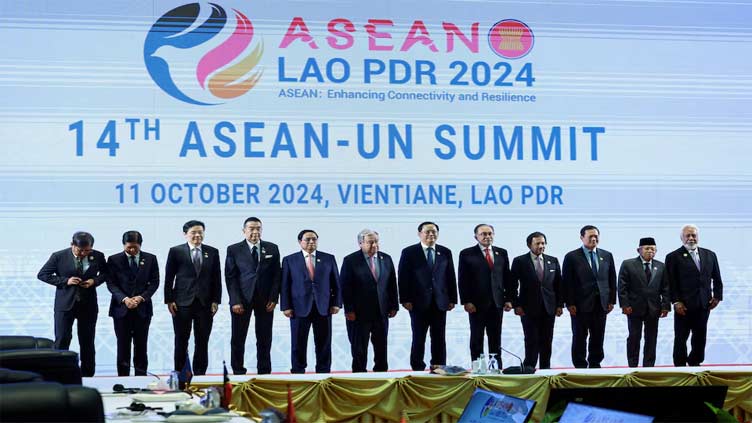ASEAN urges early accord on South China Sea code, end to Myanmar violence

World
Confrontations have been rising in disputed waters of the South China Sea
BANGKOK (Reuters) - Southeast Asian leaders called on Sunday for swift agreement on a code of conduct for the South China Sea based on international law, while demanding an immediate halt to fighting in Myanmar and inclusive peace talks to end its civil war.
The ASEAN chairman's statement represents the consensus from meetings ended on Friday of the 10-member Association of Southeast Asian Nations in Laos, which included diplomats from the United States, Russia, China, Japan, India and South Korea.
Confrontations have been rising in disputed waters of the South China Sea between China, which claims sovereignty over almost all the vital waterway, and ASEAN members including the Philippines and more recently Vietnam.
The rows have raised risks of an escalation that could eventually involve the United States, which is bound by treaty to defend the Philippines if it is attacked.
The sea, where $3 trillion worth of trade passes annually, was been a major point of contention at the ASEAN meetings, particularly with Russia and China objecting to a reference to the 1982 UN Convention on the Law of the Sea, a US official said.
The ASEAN statement called for confidence-building measures that could "reduce tensions and the risk of accidents, misunderstandings and miscalculation" in the South China Sea.
It cited "positive momentum" in talks on a maritime code that could help settle disputes. China and ASEAN agreed on this in 2002, but the formal process of creating one did not start until 2017.
The bloc "looked forward to the early conclusion of an effective and substantive" code of conduct that is "in accordance with international law", including the UN convention, the statement said.

On Myanmar's spiralling war, ASEAN called for "an immediate cessation" of violence and the creation of a "conducive environment for the delivery of humanitarian assistance and inclusive national dialogue" that is "Myanmar-owned and -led".
The war between ASEAN member Myanmar's military government and an expanding armed resistance is a major concern for the bloc, which has made little progress on a five-point peace plan, unveiled months after the 2021 coup that brought the junta to power.
Some 18.6 million people, more than a third of Myanmar's population, are estimated to be in need of humanitarian assistance.
ASEAN welcomed Thailand's initiative to host informal talks on Myanmar, possibly joined by other ASEAN members, later this year.


